gettysburg address
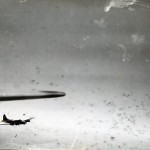
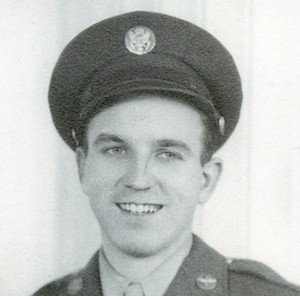 While listening to an audible book about World War II, called “Flak,” I heard one of the men being interviewed by the author for the book say, “History is told by the survivors.” It occurred to me that in most cases, at least in eras gone by, that was the truth. In order to know what really happened, there had to be a survivor. Even today, in an era of DNA, forensic science, black boxes, and phone video, there are events that cannot be definitively explained, and causes that remain a mystery.
While listening to an audible book about World War II, called “Flak,” I heard one of the men being interviewed by the author for the book say, “History is told by the survivors.” It occurred to me that in most cases, at least in eras gone by, that was the truth. In order to know what really happened, there had to be a survivor. Even today, in an era of DNA, forensic science, black boxes, and phone video, there are events that cannot be definitively explained, and causes that remain a mystery.
In World War II, survival was one of the main necessities to properly make an account of events. One might be able to look at pictures an know that the attack was bad, but in order to understand what it meant to fly through flak, someone had to really explain what the flak looked like up close, and tell us how hot it was when it got close enough to put a hole in the fuselage of the plane. We can imagine the fear the soldiers of World War II felt, but only because someone has “painted” a picture of just how bad it was to be pinned down in a foxhole with bombs raining down all around you, and bullets flying past if you tried to get out and run. No amount of 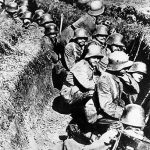 modern technology can explain how a soldier might have felt upon looking at his helmet to find a hole in it where shrapnel pierced it, and the soldier received only a small scratch. All of the “facts” that can be gleaned from the modern technology we have simply can’t tell us about how people felt.
modern technology can explain how a soldier might have felt upon looking at his helmet to find a hole in it where shrapnel pierced it, and the soldier received only a small scratch. All of the “facts” that can be gleaned from the modern technology we have simply can’t tell us about how people felt.
My dad, Allen Spencer was a top turret gunner in a B-17G bomber stationed in Great Ashfield. He told once about the ball turret gunner being shot up, and the desperate and futile effort to save his life. It was something Dad would never forget. The bombers that crashed taking all hands down with them, left no witnesses to tell if it was shot down or had engine trouble. If the plane could be found today, they might be able to guess at the cause of the crash, but it still might not be definitive. As to the soldiers who went missing in action, it was not uncommon for their body never to be found, and so no one could document their death, unless a buddy survived. All of the war stories we have today from World War II were told by the men, and women too, who survived. We know from the ones who witnessed the planes being shot down, blown up, or crashing with engine trouble. On the battlefield, the only witnesses were the other 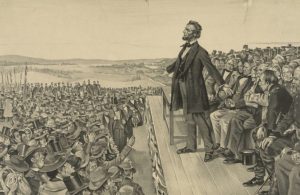 soldiers in the area, because the civilians had run far from the area.
soldiers in the area, because the civilians had run far from the area.
Even the non-war events of history had to have a “survivor” to tell about the event. It may not have been a violent event, but the Gettysburg Address would never have been known to anyone, if it had been spoken aloud in President Lincoln’s study with no one present. The speech might have been found later, but the depth of it’s meaning might have been completely lost had one witness not been so deeply moved by the speech. I wonder how much history was lost because no one was there to see and then survive to tell about it. It’s something to think about.
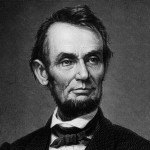 Probably my favorite historical President, would have to be Abraham Lincoln. Even in elementary school, I found his political acts to be most interesting. Of course, my favorite speech would have to be the Gettysburg Address. Every time I hear that speech, I get Goosebumps. I’m sure I’m not alone in that either. That was such a moving speech. It was at a time when our nation was severely divided, and on the brink of splitting in two. No one could agree on what we should be like. And yet, I believe that Lincoln made the right call. Owning slaves was wrong, and if it took a war to free them, then that was the way it would have to be. I am also glad that our nation did not divide, as I think we are a great nation because of our strongly united stance.
Probably my favorite historical President, would have to be Abraham Lincoln. Even in elementary school, I found his political acts to be most interesting. Of course, my favorite speech would have to be the Gettysburg Address. Every time I hear that speech, I get Goosebumps. I’m sure I’m not alone in that either. That was such a moving speech. It was at a time when our nation was severely divided, and on the brink of splitting in two. No one could agree on what we should be like. And yet, I believe that Lincoln made the right call. Owning slaves was wrong, and if it took a war to free them, then that was the way it would have to be. I am also glad that our nation did not divide, as I think we are a great nation because of our strongly united stance.
Apparently, our nation agrees with me on just how great Abraham Lincoln was too, because on this day…his birthday…in 1914, the first stones were laid for the Lincoln Memorial. I doubt that the connection was lost to those who 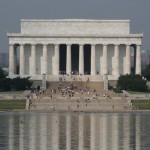 were doing the work on the splendid memorial, and maybe the work had officially been planned for that day for that very reason. Lincoln was known as the “Saviour of the Union” because of his actions to keep our nation together. The inscription reads, “In this temple, as in the hearts of the people for whom he saved the Union, the memory of Abraham Lincoln is enshrined forever.” And beneath these words, the 16th President of the United States sits immortalized in marble as an enduring symbol of unity, strength, and wisdom. I have to wonder if Lincoln would have been embarrassed or humbled by such a display. I’m sure he would be humbled, but I also think that because Lincoln was such a humble man, he would have also been a bit embarrassed.
were doing the work on the splendid memorial, and maybe the work had officially been planned for that day for that very reason. Lincoln was known as the “Saviour of the Union” because of his actions to keep our nation together. The inscription reads, “In this temple, as in the hearts of the people for whom he saved the Union, the memory of Abraham Lincoln is enshrined forever.” And beneath these words, the 16th President of the United States sits immortalized in marble as an enduring symbol of unity, strength, and wisdom. I have to wonder if Lincoln would have been embarrassed or humbled by such a display. I’m sure he would be humbled, but I also think that because Lincoln was such a humble man, he would have also been a bit embarrassed.
Abraham Lincoln came from humble beginnings. He was raised in what was then the western frontier in Kentucky and Indiana. He was mostly self educated, and became a lawyer in Illinois. He was a member of the 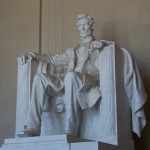 Whig Party, which is now gone, and then became a member of the Republican Party in 1854. He hated slavery and spoke out against it many times. He didn’t have much support in the South, of course, but he swept the Northern states and became president in 1860. He also reached out to the War Democrats, those who supported the war. He also confronted the Republicans who wanted to punish the South after the war, and called for more compromise with the anti-war Democrats who hated him…trying to bring peace within the government even before the war ended. Nevertheless, just six days after Robert E Lee surrendered, President Abraham Lincoln was assassinated by John Wilkes Booth, who was a Confederate sympathizer. Today, we remember Abraham Lincoln on the 206th anniversary of his birth.
Whig Party, which is now gone, and then became a member of the Republican Party in 1854. He hated slavery and spoke out against it many times. He didn’t have much support in the South, of course, but he swept the Northern states and became president in 1860. He also reached out to the War Democrats, those who supported the war. He also confronted the Republicans who wanted to punish the South after the war, and called for more compromise with the anti-war Democrats who hated him…trying to bring peace within the government even before the war ended. Nevertheless, just six days after Robert E Lee surrendered, President Abraham Lincoln was assassinated by John Wilkes Booth, who was a Confederate sympathizer. Today, we remember Abraham Lincoln on the 206th anniversary of his birth.
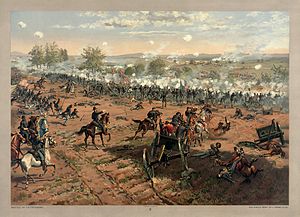 One hundred fifty one years ago today, a little battle that was a part of the Civil War, began. Many of the battles of the Civil War went without serious recognition, but not this one. It lasted only three days, but it was the turning point in the war. You have all heard of this little battle, of course…it was, the Battle of Gettysburg. It was fought between July 1 and July 3, 1863 in and around the town of Gettysburg, Pennsylvania. The soldiers were all Americans…Confederate and Union. Some were related…fathers against sons, brother against brother. With this battle came the end of General Robert E Lee’s attempts to invade the north. The fighting was fierce with many casualties on both sides. The Union side came into the battle with 93,921 soldiers and lost 3,155 men, who were killed. Another 14,531 were wounded, and 5,369 were captured or missing. The Confederate side came into the battle with 71,699 soldiers and lost 4,708 men, who were killed. Another 12,693 were wounded, and 5,830 were captured or missing. This battle was devastating, no matter which side you were on. On November 19, 1863, President Lincoln dedicated the cemetery as the Gettysburg National Cemetery to honor the fallen Union soldiers, and to reiterate the purpose of the war. In that ceremony, President Lincoln gave his historic Gettysburg Address.
One hundred fifty one years ago today, a little battle that was a part of the Civil War, began. Many of the battles of the Civil War went without serious recognition, but not this one. It lasted only three days, but it was the turning point in the war. You have all heard of this little battle, of course…it was, the Battle of Gettysburg. It was fought between July 1 and July 3, 1863 in and around the town of Gettysburg, Pennsylvania. The soldiers were all Americans…Confederate and Union. Some were related…fathers against sons, brother against brother. With this battle came the end of General Robert E Lee’s attempts to invade the north. The fighting was fierce with many casualties on both sides. The Union side came into the battle with 93,921 soldiers and lost 3,155 men, who were killed. Another 14,531 were wounded, and 5,369 were captured or missing. The Confederate side came into the battle with 71,699 soldiers and lost 4,708 men, who were killed. Another 12,693 were wounded, and 5,830 were captured or missing. This battle was devastating, no matter which side you were on. On November 19, 1863, President Lincoln dedicated the cemetery as the Gettysburg National Cemetery to honor the fallen Union soldiers, and to reiterate the purpose of the war. In that ceremony, President Lincoln gave his historic Gettysburg Address.
When my family went back to visit my sister in Keeseville, New York, we took a trip down the east coast, that included Gettysburg. I can’t tell you if any of my ancestors fought in that battle, but I can tell you that visiting Gettysburg National Cemetery, is something that stays with you. You can’t help but walk away a very changed person. That place has a hallowed feeling to it. When you know of the deaths that happened there, the blood that was shed, families that were destroyed, there is no other way to feel, but awe. They knew what they had to do, and they did what was needed. It didn’t matter how they felt about giving their lives, they all felt that their side was right, and they were willing to fight for what was right.
I will always remember the feelings I had standing there, looking at all those graves…thinking about all those lives lost. I thought about children without fathers and parents without their children. There was no way out of it. They had to fight. It was kill or be killed. And there was a very important purpose for their fighting. Even all those years ago, the feeling was still there. You felt the need to be very quiet, because to speak almost seemed wrong. I felt very honored to be in the presence of such courageous men. Our trip to Gettysburg was forty one years ago, but the way I felt while I was there has never left me. I can feel it now, as if I were standing there right now.

